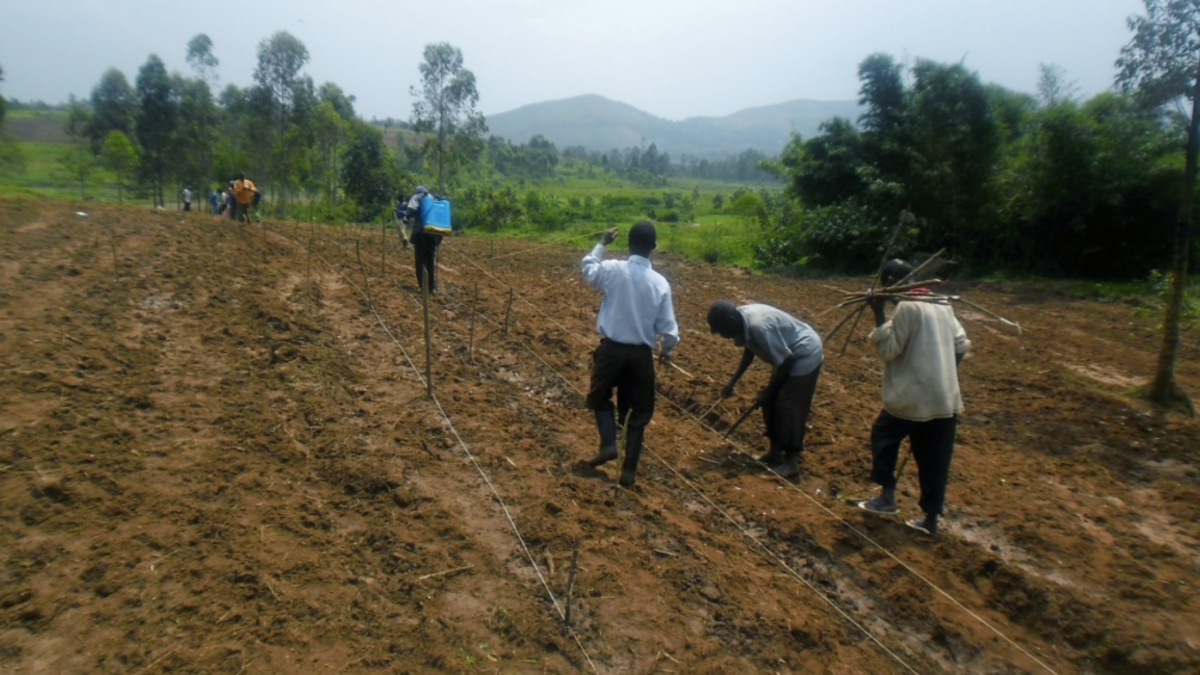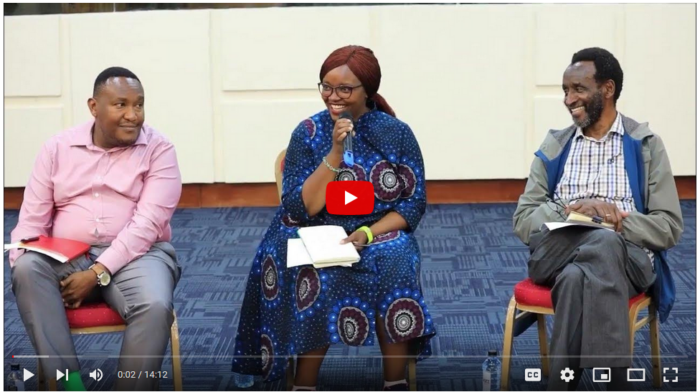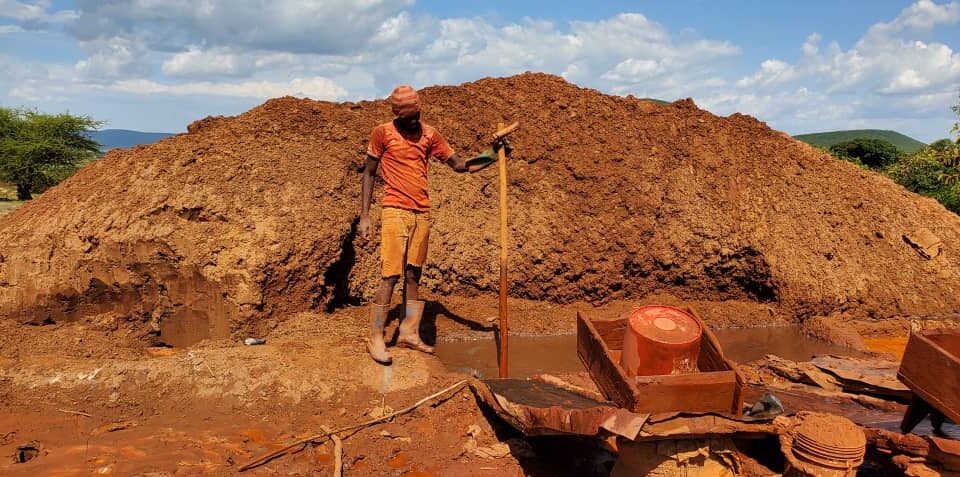We have time, you have watches [ part I ]

What we can learn from treating Ukrainian refugees differently
May 2, 2022
Nous avons le temps, vous avez les montres (1ère partie)
November 3, 2022After a long hiatus, I resume my blogging by interviewing one of the most inspiring people I know: Dieudonné Cirhigiri, a seasoned humanitarian and development professional from the Democratic Republic of Congo (DRC).
Among his many accomplishments, Dieudonné is the founder of VETO, a local non-governmental organisation (NGO) focused on food security, agriculture and child protection. He has also recently started working with the Institute for Strategy and Complexity Management, a research organisation which helps governments and business leaders make better decisions. Dieudonné has accepted to become the Institute’s Chief Executive Officer for DRC ‘to give our activities some sustainability’. Here we reflect together on his experience in development cooperation over the decades.
How did you start working in the aid sector?
First, I started with training. I was a seminarian, trained to serve the people. It remained in my mind not to ignore people’s suffering. The second step was my training in biomedical science, which put me in touch with people who need help. After three years of biomedical studies, a principle was embedded in my soul: “You must be there for people”.
In 1994, many children fled to Bukavu from Rwanda. On my veranda, there were two who did not know where their parents were. That was the trigger of my action. We had to choose very quickly between overlooking and forgetting or reaching out and committing [to help].
Friends of the International Red Cross came for food. I had some as director of the agricultural center. We made an exchange, Food for Child Care. We worked hand in hand, heart to heart, without any formal agreement, each one carrying out the activities we could. I ended up using my money to build a home for orphans and other unaccompanied children.
Tell me about your experience with NGOs and international agencies. Are there any common elements or recommendations you want to give them?
What NGOs and international agencies have in common is that they “take into account and take charge of people’s problems.” They don’t ignore them. On the contrary, they know them and handle them with their open arms. Is their motivation personal, professional, political or commercial? It doesn’t matter. The common and palpable fact is that all these people go to meet others in need.
Local NGOs must be federated, international NGOs have a working style that is not yet acquired by local NGOs. We need NGOs like CARE for technical issues, governance, provision of labour… in Africa we have time, you (ONGs) have watches. We must build on their management and documentation experience.
Speaking of approaches, I also see a weakness common to all agencies. This is linked to the artificial fragmentation of objectives and targets of their activity, for reasons of administrative convenience or programmatic choice/mandate, while the problems are experienced simultaneously, everywhere and by everyone, although at different levels. This fragmentation is, in fact, forced by the availability of financial resources and/or staff. Thus, some deal with GBV (gender-based violence), the protection of children, the provision of food or medical care etc. We cannot take care of everything, but it is a weakness to ignore the other side of the coin.
Also, we are not proactive, we react to the negative consequences of a personal or national history that we have neither manufactured nor anticipated, thus looking like firefighters putting out fires that start again at every turn.
We can’t solve everything now. Hence the question that sometimes ironically arises for all agencies: «HAVE YOU SOLVED THE PROBLEM?»

In reality, there will be no final solution (because history goes on) and even no local solution as long as our actions include little or no local institutions and actors (who live in the heart of communities) and state ministries. They have the responsibility and the power to implement the proposed solutions across the country.
Thus, only a true “National Plan” of development, protection, education, health care or infrastructure etc. can be updated with steps and indicators that will allow the government to draw up laws, ask and provide accounts to agencies, instead of continuing to react to problems.
How long shall we go? Do we not see these improvisations and these eternal restarts as a cruel waste of resources and good will? Where and how do we remember the sacrifice of many humanitarian workers who are consumed or die on duty? It is essential to crystallize their time and activities into local institutions that continue and even improve current work results. We must also ask the government for accountability, for reporting and for legal provisions that guarantee and protect humanitarian work.
I can personally point to a hospital, a reception centre for unaccompanied children, an agricultural centre and soon a university that result from the work I have done. How many other NGOs can show the physical and legal track record of their presence on the ground?
Well, to do something useful and sustainable, the approach must be rethought so that the best humanitarian aid is to gradually and solidarily eliminate the need for any humanitarian aid. Otherwise, we go around in circles and, in the long run, we contradict ourselves.
Based on your experience with VETO, what are your lessons learned and recommendations to other local actors?
First lesson: ensure the sincerity and integrity of their commitment, without discrimination or bias and, above all, without ulterior motives. Otherwise, “There is nothing to expect from a mission based on falsehood or anti-values.”
Second lesson: think and programme before and beyond emergency operations, which are almost all human-made and/or unfortunate consequences of unfair political or commercial policies.
The third lesson is to identify and address, as far as possible, the underlying causes of the crises to which NGOs and other humanitarian actors are called to respond.
And, among the other lessons learned, give voice and power to the countries and populations served, in identifying their real needs in relation to the structural and/or cyclical problems highlighted, the definition of action plans, the execution of the operations envisaged and the periodic evaluation of the results, as well as of new challenges. In short, train and equip people, create with them opportunities for personal, community or national liberation.
Regarding funding, how could donors better support Congolese organizations?
This question calls for an important number of considerations which can be condensed into these five key proposals:
Move from the faulty provider-assisted model to that of social and economic partners, openly win-win and mutually interested parties engaged in preserving social peace and the good governance of all current and future business.
Discover the role of politics, technology and existing human and natural potential in solving problems.
Develop a work plan that puts the focus on oxen and tracks before plows, the means of politics before the politics of means, the production of resources before they are used…
Involve local communities and existing organisations (whether from civil society or the private sector) in setting up sustainable structures and mechanisms for protecting and producing new resources for the future.
Facilitate and support in the long term the creation and functioning of a National Unit for the Monitoring and Coordination of Humanitarian Affairs. This Unit should be able to prevent disasters, anticipate relevant responses and provide them to all, in a timely manner and for the long term. At the very least, it should alert relevant actors among different partners (government, humanitarian agencies and populations) to the need for support and action.




